Both Sides are needed in Roma Ministry to break down barriers, concluded the three-day international conference, organized by CCME (Churches’ Commission for Migrants in Europe), in cooperation with the Ecumenical Office and the National Roma Ministry of the Reformed Church in Hungary at the Synod Office of RCH between 9-11 March, 2020. The meeting, which focused on ways of implementing ministry among the Roma, was attended by representatives of various Protestant and Orthodox churches from ten countries, who shared their good practices and also gained inspiration from RCH’s Roma Ministry activities.
Why does an umbrella organization specializing in churches’ ministry among refugees decide to organize a Roma-related event? Well, while CCME – as suggested above – started out with a refugee focus, it has, over the past few years, been trying to devote more attention to other minorities as well; minorities that often suffer from prejudices or discrimination on the part of the majority. Therefore it was a logical step to deal with the Roma community with its estimated size of 10 million people.
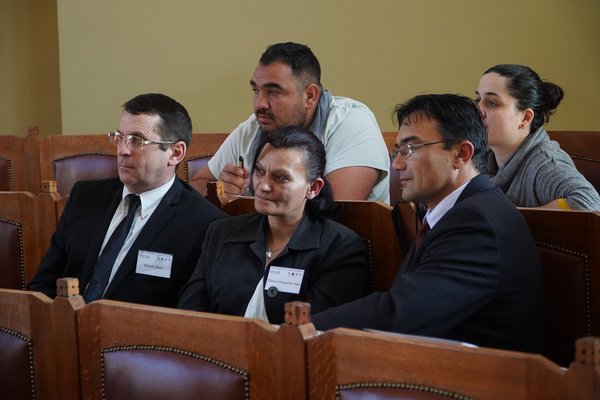
‘The situation of the Roma was a highlighted area during Hungary’s EU presidency back in 2011, and following the framework EU Framework for National Roma Integration Strategies issued then, the Reformed Church in Hungary started discussing the contents of the strategy with other churches on the continent,’ said Balázs Ódor, Head of the Ecumenical Office of the Synod Office. It was during its General Assembly that CCME decided to make this topic a priority, and the Synod Office, together with the Roma Ministry, was more than happy to accept the request to have RCH host the first international conference on ministry among the Roma.
‘There are a lot of churches in Europe who approach the Roma from the point of view of social and diaconal work. We, on the other hand, are primarily focused on fighting discrimination and working towards apologies and reconciliation,’ explained Torsten Moritz, General Secretary of CCME. ‘Recently we have been closely monitoring the situation, and we feel that it is the Roma Ministry of the Reformed Church in Hungary that has had the strongest examples in this area.’
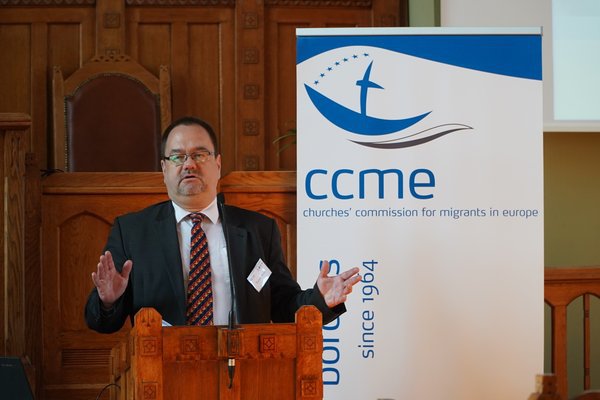
Participants of the conference came from ten countries, the majority of them from Central and Southern Europe: apart from the Hungarian participants, people from Romania (including Transylvania), the Czech Republic, Serbia, Greece and Ukraine (Sub-Carpathia) attended the conference.
Rev. Róbert Balogh from Váchartyán lay the theological foundation of the event in his opening talk: the pastor briefly discussed the history and situation of the Roma in Hungary, highlighting that one cannot really understand these in isolation, only through the mutual dependence that the Roma and non-Roma communities have on each other.
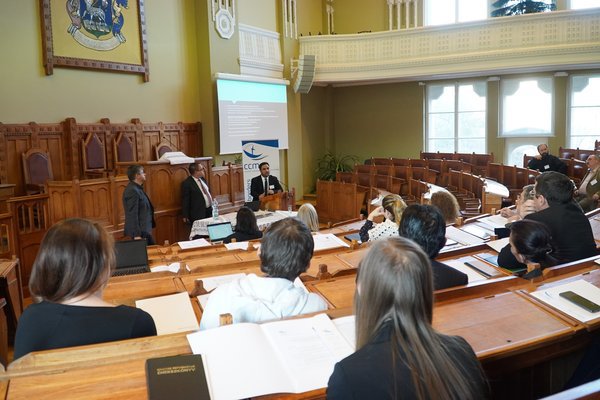
Rev. Balogh drew a parallel between the Roma and the “foreigners” mentioned in the Old Testament, as the Scripture clearly states: “‘When a foreigner resides among you in your land, do not mistreat them. The foreigner residing among you must be treated as your native-born. Love them as yourself, for you were foreigners in Egypt. I am the LORD your God.” (Lev 19:33-34). The pastor emphasized: we as Christians cannot talk about the Roma question as such, as serving among them is part of the church’s great mission.
Eszter Dani, Head of RCH’s Mission Office presented the Concept of Roma Ministry, with a special emphasis on the three pillars of the concept: Reconciliation, Health, Hope. It was mainly the message of the last pillar that participants were pleased to take home with themselves.
Empowered by the Holy Spirit, the Reformed Church in Hungary (RCH) as a sign and agent of God’s Kingdom will be a church of personal and social transformation, a community where irrespectively of origin or race, people can experience the welcoming, reconciling and healing power of the Gospel of Jesus Christ.
Vision statement of the concept of RCH’s ministry among Roma ‘Reconciliation – Health – Hope’.
Vision statement of the concept of RCH’s ministry among Roma ‘Reconciliation – Health – Hope’.
Rev. Dani also highlighted the congregation community development programme of the Roma Ministry called Together – For One Another, three participants of which also attended the conference, and she also discussed Reconciliation. ‘I enjoyed the personal discussions during the conference. These were the greatest moments – I could feel that what we do is a result not of expectations, but of conviction,’ she reflected.
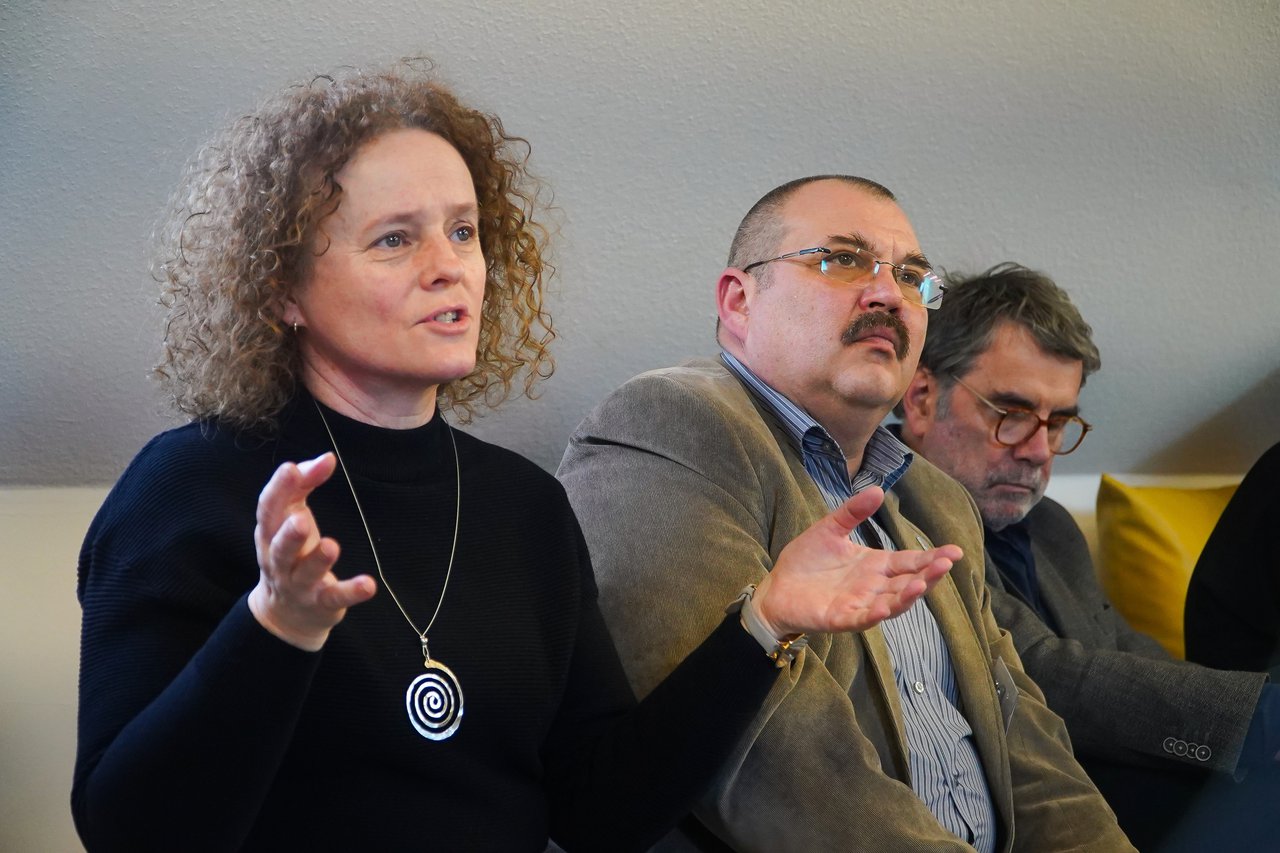
Burkhard Paetzold, representing PCUSA (Presbyterian Church in the United States of America) gave a talk about the history of the Sinti and Roma groups, and why they are the most marginalized minority within Europe, and in particular in Germany. “I am especially pleased that we are not talking about the Roma, we are talking to them about the issues that affect them,” said the mission representative of PCUSA.
On Tuesday, the conference focused on sharing and learning about good practices. Athenagoras Loukataris of the Greek Orthodox Church serves in a Roma ghetto, the largest not only in Thessaloniki, but also in all of Northern Greece. The Father works with youth who have been shunned by their family, or see no alternative in their lives to drugs, deviance or prison. And the results? A winner in a robotics competition in the United States, the discovery of various talents (e.g. a boy who made it to the final in the Greek X Factor), and many-many lambs finding God.
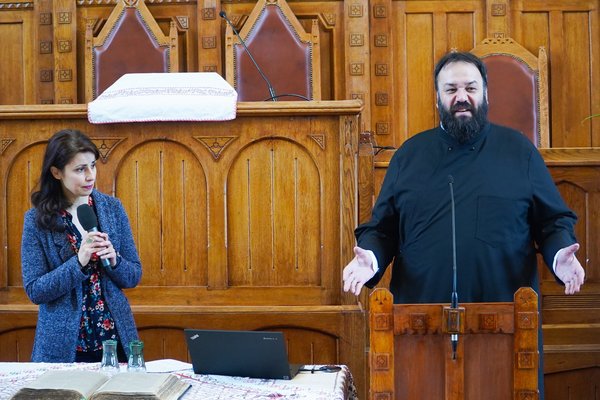
Rev. Miki Kamberovic, Board Member of Roma Networks, presented the Roma ministry work of the Serbian Pentecostal Church: the variety of services provided by the denomination, which include spiritual, educational, social and recreational programmes, reach over two thousand people directly. ‘Perform your ministry courageously, from the heart and out of love – only this way will it bear fruit,’ Rev Kamberovic encouraged his audience.
After reflecting on what they have heard in a group setting, participants of the conference visited the Reformed Roma Collegium in Budapest, where they could meet the students of the institution and learn about the programmes and opportunities it provides. It was here that the activities of You+Me Reformed Community from Budapest’s District VIII was presented by Rev. István Lakó, Richárd Márton and Vanessa Claro.
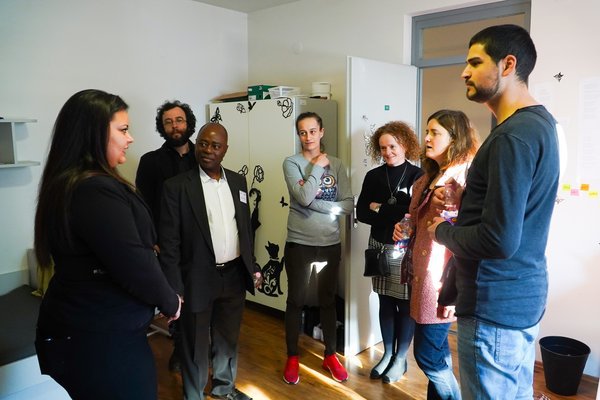
The last day of the meeting was devoted to looking back on the presentations, group discussions and field trips of the past days, and looking forward to the challenges ahead. Having been inspired by the Hungarian examples, the participants expressed the need within their own churches/countries to step up for the co-operation of Roma and non-Roma (see: Together – For One Another programme), for the joint work of denominations (see: Protestant Roma Mission Forum), and for reconciliation (see: one of the pillars of the Concept of Roma Ministry).
‘When God created the world, he made it diverse and beautiful. If it is true that he rejoiced in his creation, and he created us in his own image, we must also rejoice in each other,’ said Dénes Gyirgyó.
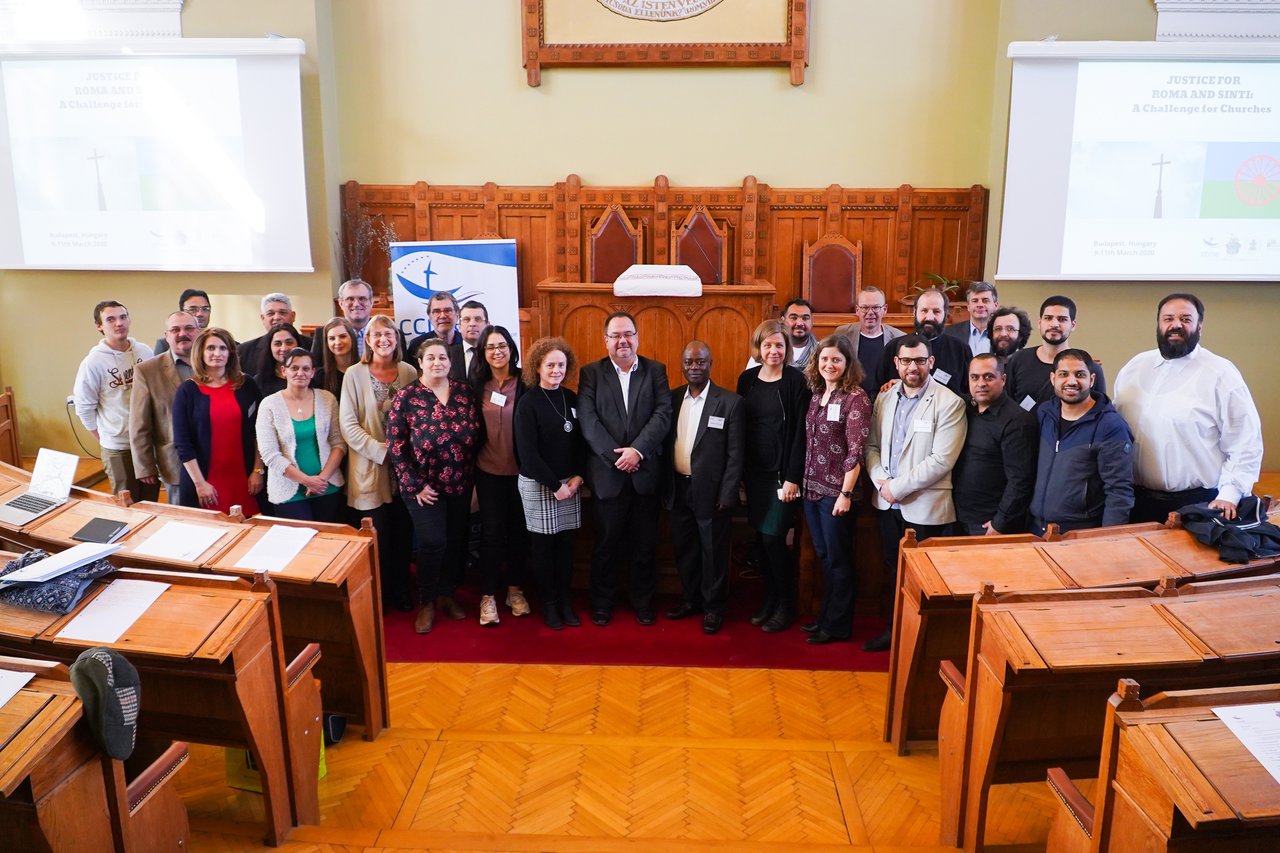
‘My heart is filled with gratitude for having met these brothers and sisters from different countries, and realizing that many of them face the same problems as we do. We need perseverance for everything, but God provides that for us in our service,’ his wife added. ‘I’m going home with joy, having seen that it is worth struggling, fighting together, regardless of nationality,’ she said.
‘It was great to experience that the conference heavily focused on community building and inclusion,’ said Balázs Ódor, summing up the meeting. ‘We acknowledge that there is a barrier between us, which we must break down from both sides, and this can only happen with the help of the Gospel. The truth found in Christ is not a dry truth. It is my hope that this change will continue in the future by the grace of God.’
Translated by Erzsébet Bölcskei